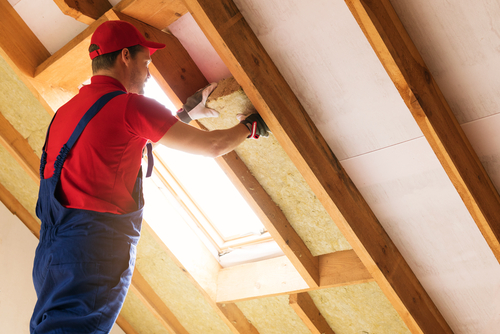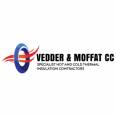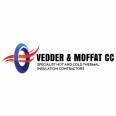Best insulation specialists in Elsies River Industrial, Western Cape
Top insulation specialists near you
Browse the best insulation experts and compare ratings and reviews.
Hire the best insulation specialist
Search Uptasker for the best insulation specialists - compare ratings and read reviews
What can an insulation specialist do for me?
With the ever-rising costs of electricity in South Africa, it is becoming more obvious that business or home owners need to contain this expense as far as possible. Much of our electricity usage is aimed at keeping our living or working environments at a comfortable temperature through the use of air-conditioners for cooling in summer or heaters during the winter months. South Africa is, however, a country of fairly diverse weather extremes, making it problematic at times to maintain the correct temperature. Since much of our heat loss or gain is through the ceiling or roof of any building, insulation is mainly used within the roof cavity to reduce the cost of manually keeping heat in or out of any indoor area. Insulation may also be used as part of a sound barrier. An insulation specialist will assist you in these matters.
Placement of insulation
According to Wikipedia “Building insulation materials are the building materials which form the thermal envelope of a building or otherwise reduce heat transfer.” In other words, they are the materials which are used to minimise the rates of transfer of heat into or out of a building, thereby keeping the inner temperature at a more comfortable level. Generally, there are different areas of a building which allow for the transfer of heat or cold, the main area being the ceiling or roof, although walls, floors, windows and draught areas are also responsible for heat loss or gain. Heat rises and leaves a building through the relatively large roof area, whilst heavier cold air enters a building the same way. Wikipedia goes on to state that “Insulation may be categorised by its composition, form, structural contribution, functional mode, resistance to heat transfer, environmental impacts, and more.”
Examples of roof insulation
Whilst there are a number of thermal insulation materials, it should also be noted that insulation is not confined to thermal control only, but may be used for sound (acoustic), fire or impact reduction. Insulation specialists in South Africa are mainly tasked with thermal insulation. A few of the different options available are :
- Isotherm, which is composed of non-chemical, fibre-free materials, making it eco-friendly and non-allergenic. It therefore has the advantage of being able to be positioned without the need for protective gear to be worn. It is non-combustible, and saves between 40% - 70% on energy costs and approximately 21% on electricity.
- Aerolite, a high-quality pink fibre-glass thermal or sound insulation material, which provides an average 3 – 5 degree loss or gain in temperature.
- Knauf Earthwool, a German-manufactured product providing high-performance thermal, acoustic and fire-resistant insulation properties. Whilst still using traditional fibre-glass properties, it is longer-lasting, and does not contain added Formaldehyde.
- Alububble, a reflective insulation product, is mainly used to reflect and block radiant heat from entering the roof, and is more of a cooling application than a static heat attractor. It comes in either single- or double-sided options, and resembles the vehicle windscreen shields which are used in the summer to keep vehicles cooler when parked in direct sun. It also provides a moisture barrier in all weather conditions, and is non-combustible. As it is reflective, it acts as a light-enhancer in factories and warehouses.
- Factorylite, a non-combustible and flexible fibreglass product which has a woven aluminium foil backing, making it more robust. Whilst it can be used on residential and commercial buildings, due to its excellent thermal and acoustic properties, its main application is within buildings, factories or warehouses which do not have ceilings. Factorylite is composed of silica sand and recycled glass, making it an eco-friendly option.
The choice of roof insulation largely depends on the building and the application for which it is needed, as can be seen. There are additional options for keeping the interior of buildings cooler in summer, including solar window-tinting which cuts out harmful UV rays, and mechanical roof ventilation products such as whirlybirds which improve the air quality within the building by removing trapped moisture and heat in the roof, which can ultimately lead to the growth of black mould and damage to roof insulation as well as health issues from inhaling the spores.
How to find the right insulation specialist
Check their online ratings and customer reviews
Insulation specialists are highly skilled, knowledgeable and experienced contractors who deliver a valuable service in the commercial, industrial and residential areas. They may be found through advertisements in home magazines, home catalogues, home expos, flyers, newspapers and the Yellow Pages. They are becoming more visible on internet searches, where Uptasker is a brilliant resource when searching the web for the right specialist, as this site provides the names, contact details, links to websites (if available), online rating and customer reviews of the insulation specialists in your geographical area. This site allows you to click directly to their websites or request quotes from different companies for comparison. Many contractors are developing their own online catalogues, from which you can check their previous installations and read customer testimonials. Always consider customer feedback for information on reliability, adherence to time and budget constraints, range of materials available, personal service and advice. Some materials are only recommended for use in certain geographical areas, due to their particular climates, which is why it is important to deal with specialists who have the appropriate experience and knowledge of your area.
Top insulation specialist tips

If you need to install insulation which will provide a continuous fire-resistant static barrier against thermal, acoustic or moisture problems in your home, commercial or retail business, as well as reflecting available light in your factory or warehouse space, you need to call in the specialists who have the necessary experience and knowledge in this field. The advantages of living and working in a thermally-controlled environment are obvious, from both an electricity cost-saving and health point of view, and can be easily achieved with help from the right insulation specialist. For more tips, see our insulation specialist articles.
Read Insulation articles






